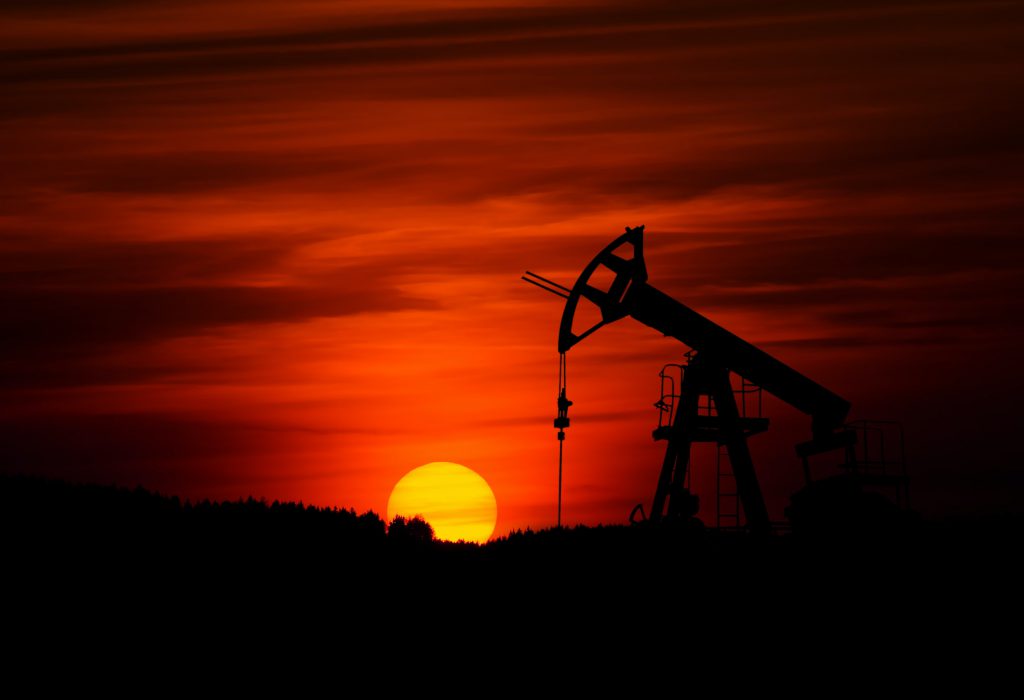On Monday, the world experienced an event never-before-seen in history.
The price of a barrel of oil for delivery in May hit MINUS $37.
In other words, in theory – oil producers would have paid their customers to take oil off their hands.
The event sent shockwaves throughout the global financial system. For the first time – ever in history – you could get paid to take delivery of a barrel of oil, instead of having to pay for it.
If you’re confused and shocked about how that’s possible – you’re not alone. Nobody has ever seen anything like it before.
Now, this does not mean that the price of oil everywhere in the world is negative. It simply means that nobody wants oil delivered next month. There is still demand – for now – for oil to be delivered later in the year.
The reason for this is simple: the immediate demand for oil has collapsed.
Oil producers are desperately trying to get rid of the oil they already have available – but nobody wants to buy it, because the people who normally do aren’t using it anymore (the world economy has come to a halt, remember) and are running out of space to store it.
Now, nobody knows where the price of oil is going to be in the future.
And my goal with this newsletter isn’t to speculate on where oil prices are going to be. I think that’s a waste of time.
But what should be clear to everyone paying attention is that the future is likely to look very different from the past.
I am not an alarmist, and I don’t believe the world is coming to an end. On the contrary, I’m an eternal optimist.
But I am also a realist, and what I’m seeing is change – on a big scale.
It seems highly unlikely – if not impossible – that the world goes back to normal in a few weeks or months.
Every day, new developments that we didn’t think were possible before (like negative oil prices) actually happen. And they change the landscape much more than most people think.
Could we see a recovery before the end of the year? Sure, that’s possible.
But could we see governments go bankrupt, higher taxes, new losses in the stock market, and a collapse in commodities price the world over? Yes, that’s possible too.
Could we see ‘safe assets’ like gold lose half of their value as investors scramble for the exits to hold cash at any cost? That’s also on the table.
In fact, anything is on the table.
If you had told anybody ten years ago that trillions of dollars of government bonds would be yielding negative interest rates, they would have thought you were crazy.
“An investment that guarantees you lose money if you hold onto it? Nobody would ever buy that.”
Yet here we are.
Negative interest-rate bonds get bought up like hotcakes by pension funds who are supposed to ensure the financial stability of a generation of baby boomers.
What this means is that we know that there just won’t be enough money to pay for pensions. We know the system is bankrupt.
So if there’s ever been a time to reconsider your biases, now is a pretty good time to start.
If…
- a large part of the world economy shutting down abruptly
- oil going to MINUS $37 a barrel
- negative interest rates the world over
- tens of millions of unemployed in a few short weeks
… isn’t going to make you think, I don’t know what is.
Look, most of us don’t like to think about scenarios that don’t fit our vision of the world – or that aren’t pleasant for us.
But just like the world has changed over the last 100 years, it will change over the next 100 too.
Whatever confidence you have about how you think things will play out in the future should have been deeply shaken to the core by now.
If it hasn’t, you just might not be paying attention.
This doesn’t mean you have to despair, of course.
Although we do not know, we can choose to have faith in the future, simply because it makes our life better – and because in the long-run, humanity has always come out OK.
As Elon Musk put it – ‘better be an optimist and be wrong, than a pessimist and be right.’
But being blind to reality and being set in our old ways is no way to deal with a future that’s looking markedly different with every passing day.
And although we cannot control all these events, we can choose how we react to them.
We can choose how we allocate our investments, recognizing that what worked in the past might not work the same way in the future.
We can choose to stay fit, work out, and keep our minds calm.
We can choose to shut out the noise and disconnect from news delivered by journalists who have virtually zero understanding of either medical science or economics and whose main business is keeping us glued to a screen.
And we can choose to be open to changing our mind as events unfold over time – and as reality changes for all of us.
All these are choices. Choices we can all make.
To freedom,

